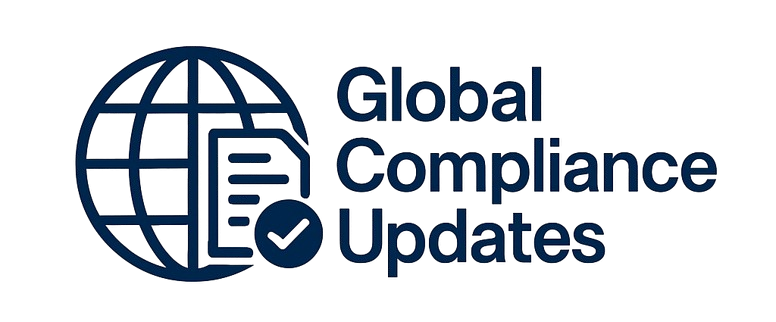This webinar will identify and explain the many required foreign reporting obligations, best practices for avoiding penalties, and how to resolve past noncompliance for trusts and estates. This webinar is for tax preparers, fiduciaries, and other professionals working with trusts and estates.
WHY SHOULD YOU ATTEND?
The government assesses and collects FBAR liability and penalties from beneficiaries and executors after a decedent's date of death and after assets are distributed. In United States v. Park, No. 16 C 10787 (N.D. Ill. May. 24, 2019), for example, the penalty assessed was over $3.5 million. Executors and tax professionals must include determining a taxpayer's compliance with foreign reporting obligations as a necessary step when reviewing, settling, or reporting a decedent's estate.
The penalty for non-willful FBAR violations is $10,000; this can be waived for reasonable cause. Willful non-filing, however, can result in penalties of $100,000 or 50% of the account balance, whichever is larger, as assessed in U.S. v. Park. Advisers must be able to identify and distinguish between a potentially willful or non-willful violation to accurately advise clients.
Form 1040, Schedule B, asks: "During 2019, did you receive a distribution from, or were you the grantor of, or transferor to, a foreign trust? If 'Yes,' you may have to file Form 3520. See instructions."
In addition to the FBAR, Form 3520 must be filed when a person receives a gift, inheritance, or distribution from a trust established by a foreign entity or individual. In addition to the 3520, owners of foreign trusts must file Forms 8938 and the FBAR. The trust itself must annually file for 3520-A, Annual Information Return of Foreign Trust With a U.S. Owner. Parts II and III of the form require reporting a complete set of books for the entity, an income statement, and a balance sheet.
Listen as our panel of experts discusses identifying trusts and estates with foreign reporting obligations, reviews the current government initiative to assess penalties, explains the completion of required forms and outlines best practices for bringing taxpayers into compliance.
AREA COVERED
The panel will discuss these and other critical issues:
- Identifying willful and non-willful FBAR violations
- Uncovering reportable foreign assets held by trusts and estates
- Preparing Forms 3520 and 3520-A for foreign gifts and distributions received
- Handling past noncompliance
LEARNING OBJECTIVES
- Responsible parties
- FATCA and FBAR reporting requirements
- Forms 3520 and 3520-A
- Other reporting obligations
- Review of recent cases
- Handling past noncompliance
- Best practices for avoiding penalties
WHO WILL BENEFIT?
- Accountants, attorneys, financial advisors, and individuals who work with/are nonresidents.
- International Tax, Nonresident Alien, Nondomiciliary, United States trade or business, FDAP, branch profits tax, FIRPTA, income tax treaty, corporate-corporate, accumulation distribution, foreign trust
The government assesses and collects FBAR liability and penalties from beneficiaries and executors after a decedent's date of death and after assets are distributed. In United States v. Park, No. 16 C 10787 (N.D. Ill. May. 24, 2019), for example, the penalty assessed was over $3.5 million. Executors and tax professionals must include determining a taxpayer's compliance with foreign reporting obligations as a necessary step when reviewing, settling, or reporting a decedent's estate.
The penalty for non-willful FBAR violations is $10,000; this can be waived for reasonable cause. Willful non-filing, however, can result in penalties of $100,000 or 50% of the account balance, whichever is larger, as assessed in U.S. v. Park. Advisers must be able to identify and distinguish between a potentially willful or non-willful violation to accurately advise clients.
Form 1040, Schedule B, asks: "During 2019, did you receive a distribution from, or were you the grantor of, or transferor to, a foreign trust? If 'Yes,' you may have to file Form 3520. See instructions."
In addition to the FBAR, Form 3520 must be filed when a person receives a gift, inheritance, or distribution from a trust established by a foreign entity or individual. In addition to the 3520, owners of foreign trusts must file Forms 8938 and the FBAR. The trust itself must annually file for 3520-A, Annual Information Return of Foreign Trust With a U.S. Owner. Parts II and III of the form require reporting a complete set of books for the entity, an income statement, and a balance sheet.
Listen as our panel of experts discusses identifying trusts and estates with foreign reporting obligations, reviews the current government initiative to assess penalties, explains the completion of required forms and outlines best practices for bringing taxpayers into compliance.
The panel will discuss these and other critical issues:
- Identifying willful and non-willful FBAR violations
- Uncovering reportable foreign assets held by trusts and estates
- Preparing Forms 3520 and 3520-A for foreign gifts and distributions received
- Handling past noncompliance
- Responsible parties
- FATCA and FBAR reporting requirements
- Forms 3520 and 3520-A
- Other reporting obligations
- Review of recent cases
- Handling past noncompliance
- Best practices for avoiding penalties
- Accountants, attorneys, financial advisors, and individuals who work with/are nonresidents.
- International Tax, Nonresident Alien, Nondomiciliary, United States trade or business, FDAP, branch profits tax, FIRPTA, income tax treaty, corporate-corporate, accumulation distribution, foreign trust
Speaker Profile
 Patrick J McCormick
Patrick J McCormick
Patrick J McCormick is a partner with Culhane Meadows, a United States law firm with prominent experience and specialty in the international realm. Patrick practices exclusively in the area of international taxation; he has extensive experience in handling complex tax planning, structuring, and compliance issues for foreign businesses with United States operations, United States businesses with foreign operations, and individual taxpayers with international ties. He regularly works conjunctively with advisors both in the United States and abroad to assist with international tax issues faced by their clients.Patrick is a prolific contributor to a multitude of tax journals and legal publications, …
Upcoming Webinars


Effective Communication: Ensuring Clarity, Accountability a…

2-Hour Virtual Seminar on Workplace Investigations 101: How…

Employers Should Prepare for Immigration Raids in 2026! Thi…

AI for Excel Professionals: Enhancing Productivity with Cha…

The Importance of the first 5 seconds when presenting

Negotiating Skills For Professional Results - Winning Strat…

Workplace Behavior in 2026: Tackling Conflicts and Incivili…

FDA Recommendations for Artificial Intelligence/Machine Lea…

Validation Statistics for Non-Statisticians

Bootcamp for New Managers and Supervisors: Develop These Es…


Interactive dashboards & analytics in Excel


Enhancing Project Management with Storytelling Techniques

4-Hour Workshop on Data Simplified: Sorting and Filtering, …

Creating Your 2026 Marketing Strategy

The Language of Leadership: Is Your Communication Style As …

ChatGPT for Innovative Business Advisory Services for Accou…


Utilizing A Proven Process When Conducting Sensitive, Inter…

How to Write Procedures to Avoid Human Errors

Human Factors Usability Studies Following ISO 62366 and FDA…

Why EBITDA Doesn't Spell Cash Flow and What Does?

Mastering DAX Patterns in the Era of AI & Copilot

Establishing Appropriate Quality Metrics and Key Performanc…


IRS Form 1099 Reporting: Compliance Requirements

FDA QMSR Explained: How the QMSR Replaces the QSR

How to Manage the Legal Landmine of the FMLA, ADA and Worke…

Understanding EBITDA – Definition, Formula & Calculation

Tattoos, hijabs, piercings, and pink hair: The challenges …

FDA Compliance And Laboratory Computer System Validation

Medical Device Hazard analysis following ISO 14971




Excel Spreadsheets; Develop and Validate for 21 CFR Part 11…

Excel + AI: The Smart User's Guide to Faster, Easier Work w…
